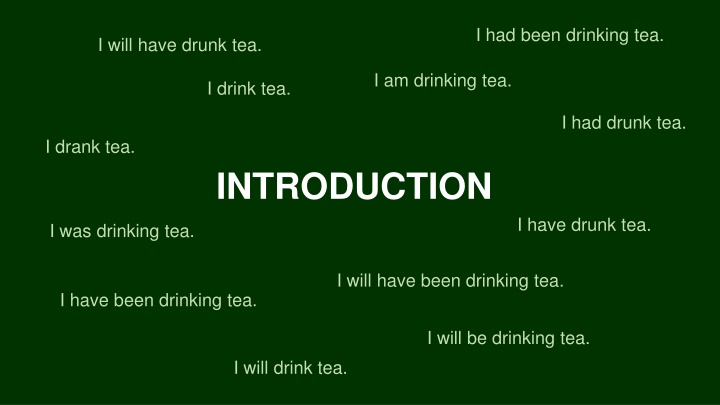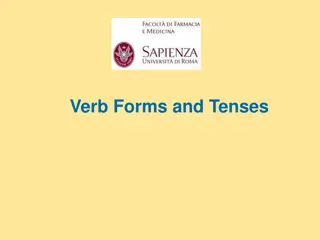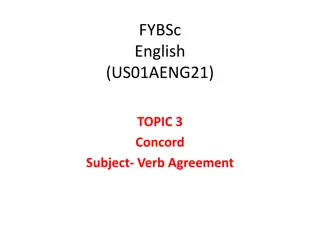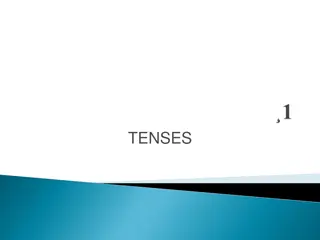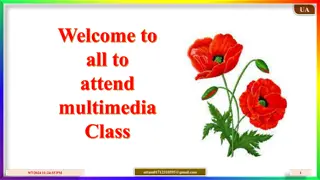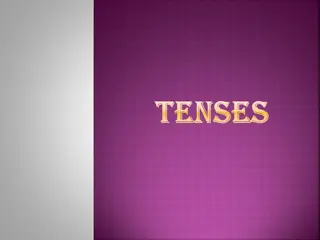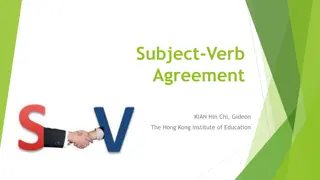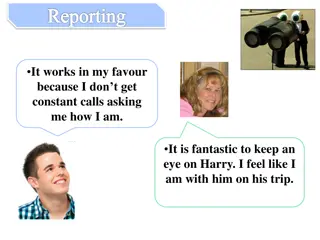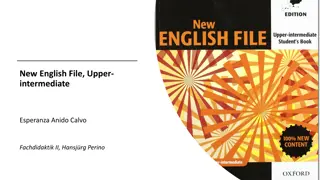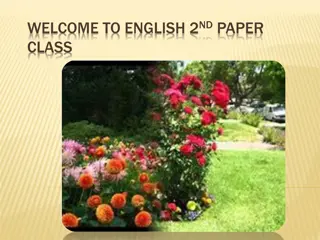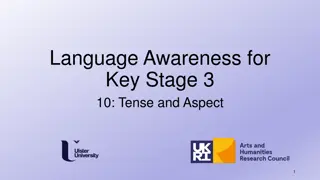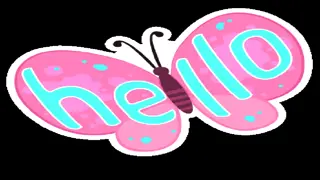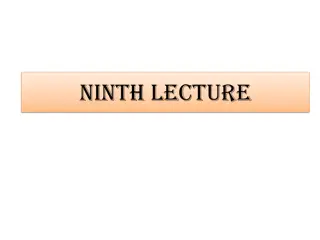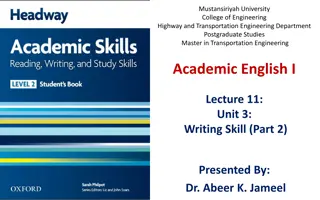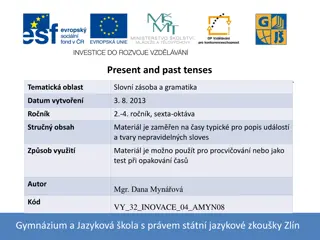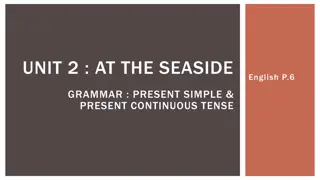Learning About Verb Tenses
The world of verb tenses, from past to future, simple to continuous, and perfect forms. Understand how verbs like "be," "do," and "have" function in sentences, and practice identifying ordinary and auxiliary verbs. Dive into verb tense names and self-evaluate your understanding with exercises on verb tenses. Enhance your language skills and mastery of English grammar.
Download Presentation

Please find below an Image/Link to download the presentation.
The content on the website is provided AS IS for your information and personal use only. It may not be sold, licensed, or shared on other websites without obtaining consent from the author.If you encounter any issues during the download, it is possible that the publisher has removed the file from their server.
You are allowed to download the files provided on this website for personal or commercial use, subject to the condition that they are used lawfully. All files are the property of their respective owners.
The content on the website is provided AS IS for your information and personal use only. It may not be sold, licensed, or shared on other websites without obtaining consent from the author.
E N D
Presentation Transcript
I had been drinking tea. I will have drunk tea. I am drinking tea. I drink tea. I had drunk tea. I drank tea. INTRODUCTION I have drunk tea. I was drinking tea. I will have been drinking tea. I have been drinking tea. I will be drinking tea. I will drink tea.
INTRODUCTION: VERBS AUXILIARY VERBS ORDINARY VERBS describe actions, states, experience be do have form tenses will drink I will drink tea. I drink tea. I am drinking tea. I am a tea drinker. BE I do tea business. DO I have a tea shop. HAVE I do not drink tea. I have drunk tea.
INTRODUCTION: VERBS BE, DO, HAVE - PRACTICE Ordinary verb or auxiliary verb? 1. The cat has white paws. 2. He is wearing a bulletproof vest. 3. Did she go to the cinema? 4. The kids are in the pool. 5. I usually do the dishes. 6. Have you heard the news? 7. Tom is being nice. 8. Do you do the shopping? 9. I have had my lunch.
INTRODUCTION: VERB TENSES 1. a set of forms of an ordinary verb e.g. drank (tea), drink (tea), will drink (tea) 2. to indicate the time of action (TIME) past, present, future 3. in relation to the time of speaking e.g. yesterday, nowadays, tomorrow 4. showing how the action is viewed in time (ASPECT) simple, continuous, perfect simple, perfect continuous I DRANK tea. 1. past form of drink. 4. simple view of drink 2. time of drinking 3. time of speaking about drinking past present future
INTRODUCTION: NAMES OF VERB TENSES TIME + ASPECT PAST PRESENT FUTURE Past Simple Present Simple Future Simple SIMPLE Past Present Continuous Future Continuous CONTINUOUS Continuous Past Present Perfect Simple Future PERFECT SIMPLE Perfect Simple Perfect Simple Past Present Future PERFECT CONTINUOUS Perfect Continuous Perfect Continuous Perfect Continuous
INTRODUCTION: SELF-EVALUATION CEFR LEVELS / TENSES PAST PRESENT FUTURE Simple Continuous Perfect Simple Perfect Continuous C1 Simple Continuous Perfect Simple Perfect Continuous Simple Continuous Perfect Simple Perfect Continuous B2 Simple Continuous B1 Simple Continuous Simple Continuous Perfect Simple Simple Continuous Perfect Simple Simple A2 Simple Simple A1
INTRODUCTION: SELF-EVALUATION Mixed 12 Tenses Exercise Test
I had been drinking tea. I will have drunk tea. I am drinking tea. I drink tea. I had drunk tea. I drank tea. INTRODUCTION I have drunk tea. I was drinking tea. I will have been drinking tea. I have been drinking tea. I will be drinking tea. I will drink tea.
